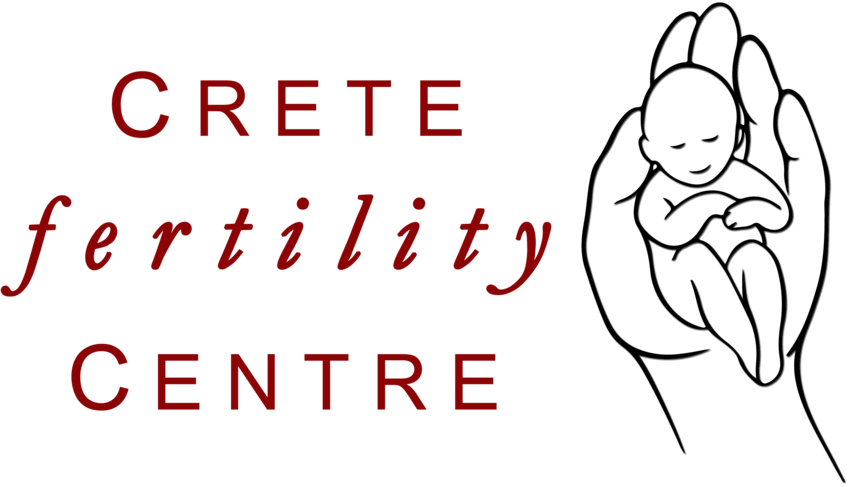Exosome treatment
Exosome treatment assists female rejuvenation
Exosomes derived from adipose tissue mesenchymal stem cells (AD-MSCs) offer a cutting-edge solution of regenerative medicine which affects positively female rejuvenation. Exosomes are enriched with a diverse range of biologically active molecules—proteins, lipids, and genetic material—that contribute to their regenerative, anti-inflammatory, and angiogenic potential. Thus, they offer a promising approach for tissue repair and healing.
Key therapeutic effects include:
- Facilitating tissue regeneration and repair
- Alleviating local inflammation
- Improving vascularization in targeted areas
Due to these characteristics, exosome treatment is a minimally invasive alternative for revitalizing ovarian function, regenerating endometrial tissue, and addressing broader concerns linked to female reproductive aging.
Crete Fertility Centre provides successfully the innovative technique of exosome treatment, adding it to a wide range of rejuvenation applications which enhance women’s ovarian functionality.
Understanding exosomes
Exosomes are tiny, membrane-enclosed particles often likened to protein-shrouded nanobubbles, naturally secreted by cells into bodily fluids such as blood, urine, and others. Ranging between 30 and 150 nanometers in diameter, they represent the smallest subset of extracellular vesicles.
Although their size is tiny, exosomes are key agents in cell-to-cell communication. They serve as carriers for various molecular payloads—including lipids, proteins, and genetic materials—effectively influencing the biology of recipient cells. This exchange underpins a broad spectrum of physiological functions and plays a pivotal role in regenerative medical applications.
One of their most promising features is their ability to regulate cellular behavior—particularly in areas such as healing, immune modulation, and tissue renewal. Due to these unique traits, exosomes are at the forefront of current biomedical research, being explored in everything from organ repair to fertility treatments and systemic rejuvenation efforts.1,2.
Exosomes and ovarian rejuvenation
As women age, a natural decline in both the quantity and quality of oocytes leads to diminished fertility and eventually to menopause. Ovarian aging is a significant contributor to reproductive challenges and systemic hormonal changes.
Recent results propose exosome treatment as an innovative solution for ovarian rejuvenation. Experimental studies have indicated that exosomes can improve significantly ovarian health and restore fertility, giving an extra solution to women with low ovarian reserve.
How exosome treatment works
Exosomes contribute to ovarian rejuvenation with multiple ways:
- Follicle Development Stimulation: Encourages the development and maturity of ovarian follicles that carry eggs.
- Improved Cellular Communication: Encourages latent follicles and facilitates interactions in ovarian therapies
- Oxidative Stress Reduction: Reduces oxidative damage by neutralizing reactive oxygen species.
- Inflammation suppression: Controls immunological reactions to foster the growth of follicles.
- Hormonal Regulation: Controls the synthesis and transmission of important hormones, including estradiol and follicle-stimulating hormone (FSH).
- Ovarian Vasculature Protection: Assists in maintaining a robust blood flow to the follicles.
- Primordial Follicle Pool Maintenance: Preserves the ovaries’ supply of oocytes.
- Cell migration and proliferation: Assists in tissue repair and regeneration.
Which are the advantages of exosome treatment
The therapeutic application of exosomes for ovarian rejuvenation may offer a range of benefits:
- Enhanced Fertility Results: May boost natural conception potential and improve success rates in IVF and generally in assisted reproduction treatments.
- Postponed Menopause: Maintains ovarian function and may increase the lifespan for reproduction.
- Lower Risk of Age Related Diseases: Osteoporosis and cardiovascular disease may be less likely to occur if ovarian health is maintained.
Extended applications of exosomes
The ovaries serve as a pivotal component of the female reproductive system. As menopause approaches, the progressive decline in ovarian activity leads to a marked reduction in estrogen levels. This hormonal shift has far-reaching implications beyond fertility.
One major consequence of estrogen deficiency is the impaired production of collagen and elastin—key structural proteins that maintain the integrity and flexibility of pelvic floor tissues. This reduction compromises pelvic support, potentially contributing to conditions such as pelvic floor dysfunction (PFD). Clinical symptoms of PFD commonly include stress urinary incontinence (SUI) and pelvic organ prolapse (POP).
In addition to these localized issues, diminished ovarian function is linked to broader health concerns, including a heightened risk of cardiovascular disease, bone density loss (osteoporosis), and other aging-related disorders.
How exosomes affect vaginal and pelvic rejuvenation
Research into exosomes derived from adipose-derived mesenchymal stem cells (AD-MSCs) highlights their multifactorial benefits in women’s regenerative health. Key mechanisms by which they promote tissue restoration include:
- Tissue Regeneration:
AD-MSC exosomes facilitate cellular growth and mobility, contributing to the healing and renewal of vaginal tissues, including epithelial and connective structures. This enhances vaginal tone and function, offering relief from symptoms associated with PFD, SUI, and POP, as well as hormonal decline. - Collagen Production:
These exosomes are rich in growth signals that activate fibroblasts, stimulating the synthesis of collagen. Increased collagen deposition strengthens vaginal tissues, enhancing elasticity and firmness. - Angiogenesis Support:
Exosomes deliver pro-angiogenic molecules such as vascular endothelial growth factor (VEGF), which promotes the development of new blood vessels. Improved blood flow enhances nutrient and oxygen delivery to target tissues, accelerating recovery and rejuvenation. - Anti-Inflammatory and Immune Modulation:
AD-MSC exosomes help suppress chronic inflammation and modulate immune responses, creating favorable conditions for tissue repair while minimizing the risk of adverse effects. - Antioxidant Protection:
By transferring antioxidant enzymes like superoxide dismutase (SOD) and glutathione peroxidase (GPx), exosomes reduce oxidative damage and promote cellular longevity in the vaginal mucosa. - pH Balance Regulation:
Exosomal content may assist in stabilizing vaginal pH levels, supporting microbial balance and protecting against infections. - Hormonal Modulation:
These vesicles may also influence hormone signaling, offering potential therapeutic effects in hormone-related atrophy and dryness.
Taken together, these modes of action suggest that exosome-based treatments could serve as a comprehensive, non-invasive approach to female pelvic and vaginal rejuvenation.
Who May Benefit from Exosome Treatment
Therapies involving exosomes may be applicable to a diverse group of women seeking solutions for age- or hormone-related changes. These regenerative treatments have shown potential across various clinical contexts.
Potential candidates include:
- Postpartum women experiencing tissue laxity, atrophy, or reduced pelvic support following childbirth
- Perimenopausal or menopausal women dealing with hormonal imbalance, dryness, or vaginal atrophy
- Patients with stress urinary incontinence (SUI), often due to pelvic floor weakening
- Women facing sexual dysfunction, including reduced sensation or discomfort
- Those with vaginal dryness or thinning of mucosal tissues, often associated with hormonal decline
By targeting cellular repair, hormonal balance, and structural integrity, exosome-based interventions offer a promising non-surgical approach to address these common issues in female health.
A Streamlined and Minimally Invasive Technique
The exosome-based rejuvenation procedure relies on a well-established and minimally invasive protocol for harvesting and delivering regenerative components derived from the patient’s own adipose tissue. This method ensures both safety and effectiveness while minimizing discomfort and recovery time.
Main steps of the procedure include:
- Adipose Tissue Collection:
After identifying a suitable donor area—commonly the abdomen or thighs—local anesthesia is administered. Using a specialized syringe and microcannula system, a small volume of subcutaneous fat is gently aspirated. - Tissue Decantation:
The collected fat is allowed to settle naturally, separating impurities and fluid elements from the viable cellular content. - Processing and Purification:
The aspirated material is processed to disintegrate fat clusters and isolate a homogeneous fluid suspension, eliminating unwanted pro-inflammatory substances. - Microfiltration:
Through a series of filtration steps, mesenchymal stem cells (MSCs) and their exosomes are enriched, while inflammatory agents are removed to ensure a high-purity preparation. - Exosome Activation:
The filtered product is further refined using specific instrumentation to activate and concentrate the exosomal fraction, maximizing its regenerative potential. - Reinjection to Target Area:
The final suspension—rich in bioactive exosomes—is promptly reinjected into the designated treatment zone, such as the vaginal wall or pelvic tissue, where it stimulates repair, collagen production, and local rejuvenation.
This procedure is typically performed in Crete Fertility Centre under local anesthesia or light sedation and is well-tolerated by patients. The autologous nature of the material (derived from the patient herself) reduces the risk of allergic reactions or immune rejection, contributing to the high safety profile of the treatment.
1. Qin X, He J, Wang X, Wang J, Yang R and Chen X (2023) The functions and clinical application potential of exosomes derived from mesenchymal stem cells on wound repair: a review of recent research advances. Front. Immunol. 14:1256687
2. Nguyen S T. Exosomes derived from mesenchymal stem cells: A novel agent for skin aging treatment. Biomed. Res. Ther. 2025; 11(12):7003-7014





